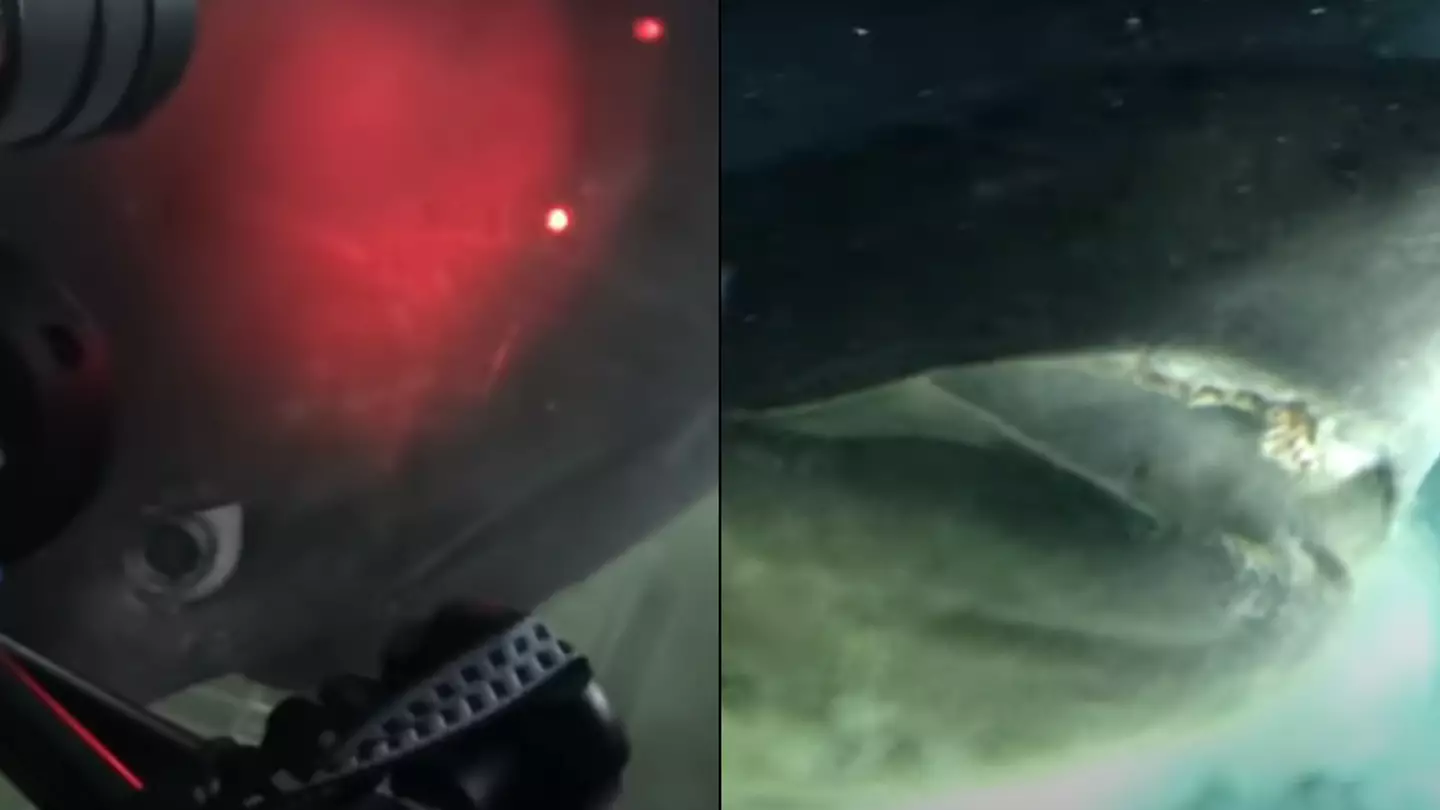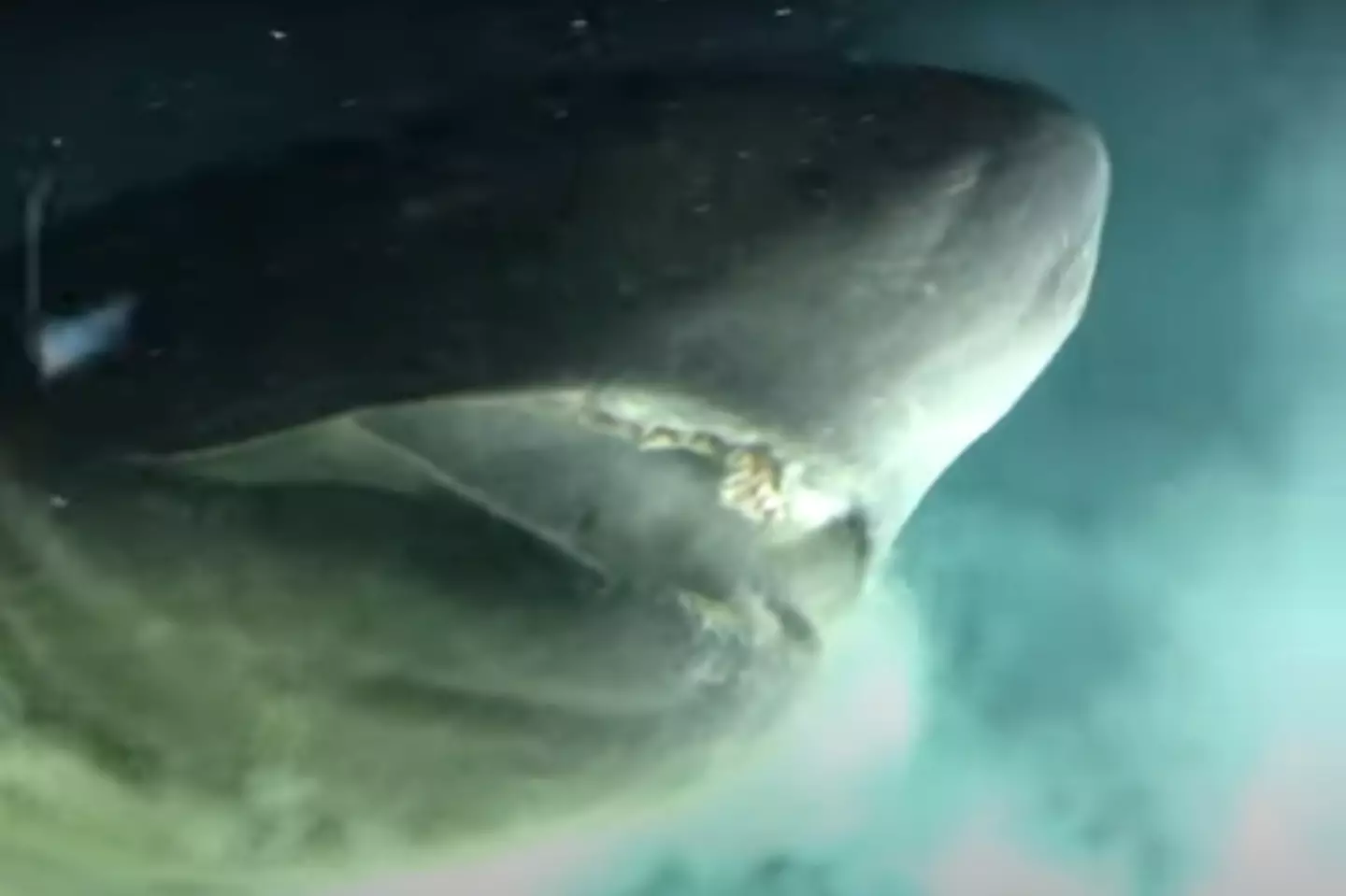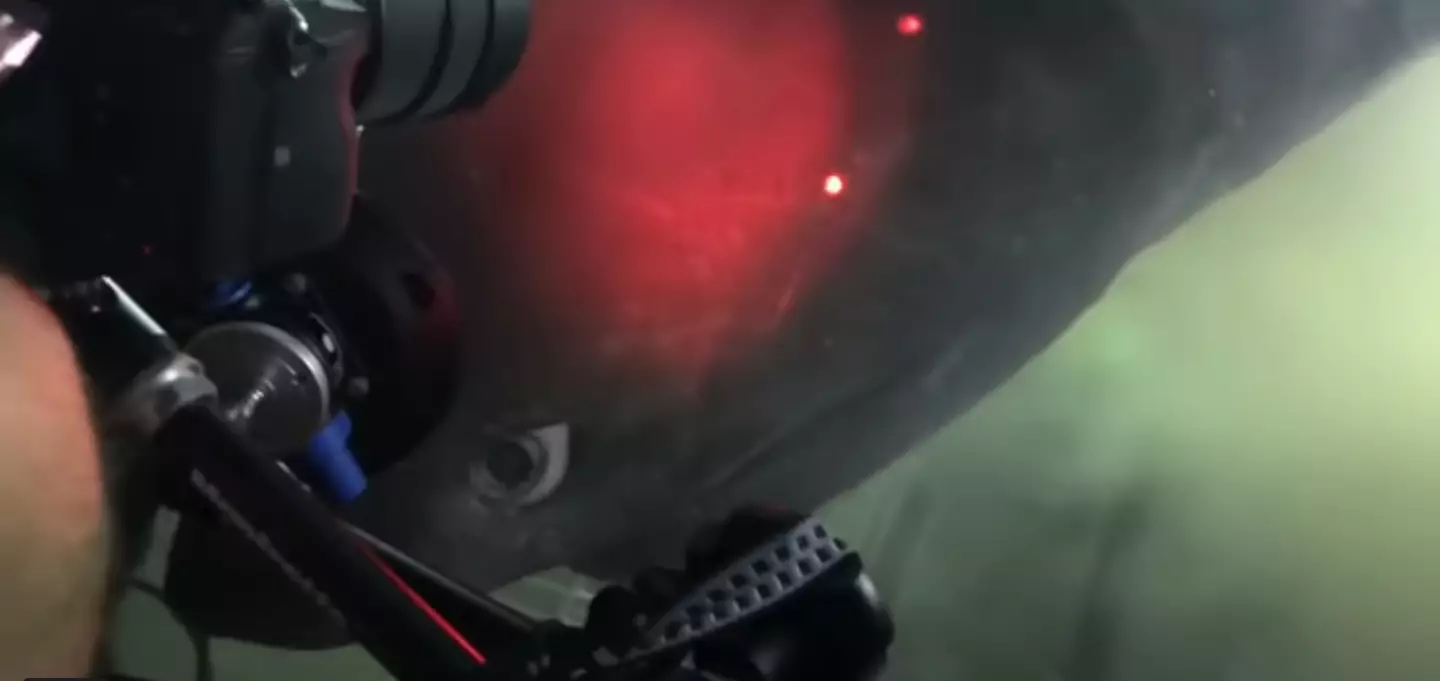
If you have a fear of the ocean, then look away now as a submersible captured some shocking footage of a pre-historic sea creature while it was exploring the ocean floor.
The scientists in the OceanX sub itself were left in awe by what they saw, as they made history.
Deep sea footage caught by a GoPro that was dropped down a few feet into the ocean is enough to creep some people out, but what was found in this viral video is something a lot more ground-breaking and to some, a lot weirder.
The video was posted on OceanX YouTube channel four years ago and is just over 90 seconds long, but what the explorers managed to capture is truly breath-taking.
Advert
In the description of the video, the company states that it has partnered with the Cape Eleuthera Institute to become the first ever submersible to tag an animal.
"Our objective was the deep-sea shark, the bluntnose sixgill," it explained.
"This ancient species predates most dinosaurs, and is a dominant predator of the deep sea ecosystem."
FSU Marine Lab's Dr. Dean Grubbs was the lead scientist on the mission, and succeeded in achieving the goal.

Advert
Grubbs let the team to become the first ever to put a satellite tag on the elusive species of sharks on the sea floor, with scientists in the past only able to do so by bringing them up to the surface.
The team did this on the sea floor, and the footage also shows how shocked the men were in the sub.
Spotting the shark swimming around it, one of them said: "Oh, wow!"
"Look at the width of that thing!"
Attempting to get her in the prime position to tag, they were hesitant to tag her when she was belly-side, waiting for her to get closer.
Advert
Which she did, pushing her nose up against the side of the submarine, glancing up at the intrigued scientists, even seeming to roll her eyes as she swam away.
The scientists couldn't believe just how big the female shark was, pointing out that she was larger than average.

Her species usually grow up to 20-feet in length, but rarely anyone has been so up close and personal with one before.
The species predates most dinosaurs, meaning they have roamed the seas for tens of millions of years.
Advert
People were just as in awe in the comments section.
One user said: "If not the size, this shark's eye alone would have given me a straight heart attack."
Another commented: "That eye close-up was wicked."
A third put: "Scientists, 'Whoa.' That's when you know it's serious."